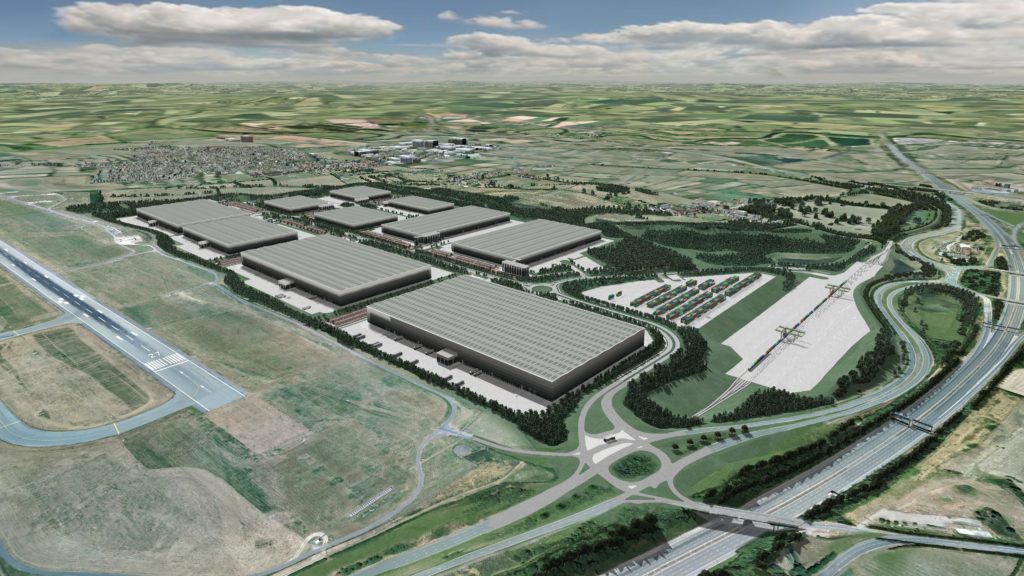Features - Business
Utilities infrastructure – when the honeymoon is over

Standards of service, performance and delivery across utility infrastructure projects should remain consistent from the initial meeting, through to contract completion – but why is this rarely the case and who’s at fault when promises fail to deliver? Paul Beck, Sales Director of Independent Connections Provider (ICP) Matrix Networks looks at the underlying issues.

Paul Beck, Matrix Networks, Sales Director
“It’s the same story in any industry, paint a rosy picture throughout the business development process, promise the world in order to secure the contract, then once the ink’s dried, let reality kick in. The responsibility of delivery then falls to other team members, subcontractors and personnel who may not have been privy to the platinum levels of service and expertise which were promised at the tendering stage – or worse still, they don’t care.
“This subject was brought to my attention recently through a post on a social media site. Site Managers, Site Supervisors and Building Services Managers were expressing their frustration around delays on connections, lack of communication, rigid working practices, insufficient management, and so on. The particular thread was about Utility Infrastructure in a market sector in which we don’t work, but the criticisms were transferrable. The question is, why does everything so often fall apart when it comes to contract delivery?
“Well first, let’s look at some of the issues: Talking to contacts across the industry, lack of supply chain communication, the ‘tick box mentality of middle men’, lack of engagement over connection applications and lack of planning were cited as some of the main issues. So it appears we’re not talking about the technical inability to do the job here, rather frustrations which seem to come down to poor levels of communication and engagement.
“Too many companies like to pay lip service to customer service. I can count on one hand the number of companies I feel are genuinely interested in me as a customer- these are companies where the employees are engaged, valued and motivated to do their job. Looking at some of the complaints I hear about the utility infrastructure industry, it’s clearly the same. A good ICP should anticipate potential issues, working these into their resources and delivery programme at the outset – land owners along excavation routes, stipulations from regulatory bodies, challenges from local residents, or conflicting timetables imposed by third parties, for example. They should also be communicating with and managing any subcontractors closely, to ensure their client doesn’t have grounds to complain of a ‘tick box mentality’. These are all promises which will be made as part of any ICP’s pitch, the trouble is too many developers and main contractors have come to accept substandard levels of service as the norm.

• Primary substation designed and installed by Matrix Networks – every element of site works must be communicated with the Main Contractor or Developer
“The utility infrastructure industry as a whole can and must do better. Poor service levels, a lack of clarity around pricing, and an inflexible approach to how contracts can be designed and delivered, are areas which must improve. Many providers are making no attempt to right these wrongs and sit happy on the presumption that their clients will stick with them, because of familiarity and a consideration that their prices are ‘good’. The truth is, that as long as people in the construction industry accept poor service for cheap prices the issues highlighted will continue. It’s never made any sense to me why such an important part of a Development can be so undervalued. In my mind, getting power on when expected and on budget, without issues, is vital. Surely it should be a priority to engage a professional ICP who communicates well and acts with professional integrity for the duration of a contract? Surely the alternative of programme and reputational risk isn’t worth the saving of a few thousand pounds? Our clients tell us the most important service we provide is our delivery of projects on time and on budget – with good levels of engagement and communication along the way. Isn’t this what should be expected of all ICPs?
“However, the challenge for achieving satisfaction throughout the contract delivery actually extends beyond the remit of the ICP. A certain amount of responsibility sits with the Developer or Main Contractor – having sufficient protocol in place for internal and supply chain communications to ensure there are no unnecessary surprises on site. When new Contractors are brought into a project does the site team know and fully understand who they are and what the scope of their role is? Are they told what specific agreements are in place? Do they also have a clear understanding of the risks the ICP is shouldering and therefore an honest view of the complexity of the works being undertaken? Best practice should dictate that the Contractor/ICP relationship ensures every touch point in the supply chain has a clear understanding of the project delivery – but the relationship with the client must be properly established to ensure these communication channels are open. Therefore a professional ICP will be completely engaged and embedded in a project, and will be very consultative in its approach.
“The issue of supply chain communication and poor industry practice can’t be resolved in just one article, but there’s food for thought here. In my view, there is no reason why site teams shouldn’t receive high levels of service and respect from their utility infrastructure provider. Good communication off the back of a good procurement process is the obvious place to start.”
If you would like to read more articles like this then please click here.
If you are interested in finding out more about key infrastructure trends today, you may wish to attend the flagship infrastructure exhibition at the NEC in April 2019: UKIS 2019
Register for your delegate place now: UK Infrastructure Show 2019.
Related Articles
More Features
- Ten years of progress on payment, pre-qualification and skills
19 May 25
The industry has made significant progress on late payment, pre-qualification, and competence since the formation
- Pagabo provides clarity on impacts of new NPPS and PPNs
12 Mar 25
The Labour government’s new National Procurement Policy Statement (NPPS) sets out strategic priorities for public
- How is the Procurement Act going to drive social value
24 Feb 25
The regulations laid out within the Procurement Act 2023 will go live today.






